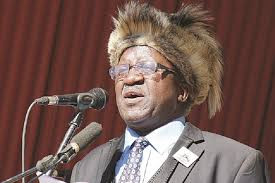
TEACHERS have approached the International Labour Organisation (ILO) to intervene in its dispute with their employer over poor working conditions and salaries.
The teachers, represented by their unions, are pinning their hopes on the UN agency responsible for labour issues after exhausting internal channels.
The teachers said they previously petitioned President Emmerson Mnangagwa’s administration to address their concerns with no joy.
In a letter dated June 11, 2025, addressed to Karen Curtis, ILO chief — Freedom of Association Branch — Amalgamated Rural Teachers Union of Zimbabwe (Artuz) stressed its disappointment with the government’s lack of urgency in addressing the educators’ grievances.
“To date, the only feedback we have received was an informal call from the Zimbabwe Congress of Trade Unions, ZCTU, requesting us to propose two conciliators for the process,” Artuz leader Obert Masaraure wrote.
“This request was made on 21 March 2025, and to date, we have not received any feedback on progress despite our efforts to inquire through the ZCTU.”
“We were hopeful that by now we could have engaged and resolved the raised complaint and subsequent issues that arose post-filing the complaint.”
In response, Curtis said: “By the procedure in force, the contents of your communication will be transmitted to the government for its observations thereon.”
- Mr President, you missed the opportunity to be the veritable voice of conscience
- ED to commission new-look border post
- Zanu PF ready for congress
- EU slams Zim over delayed reforms
Keep Reading
The dispute between teachers and their employer has been raging for years, despite authorities promising to address their concerns.
Teachers are decrying low salaries and are demanding to be paid at least US$540 per month by their employer, which they were earning before October 2018.
Currently, teachers earn an average of US$250 per month and around ZiG3 000, which has been outpaced by the rising cost of living.
The government says it cannot meet such levels, citing constrained resources amid rising demand for limited resources.
The government is cutting its coat according to the size of the cloth to avoid a huge budget deficit. It is also working on reforms, which are the housekeeping issues in the arrears clearance and debt resolution process.
The low-hanging fruit in this dispute is for the government to address economic headwinds, which leaves citizens with more disposable income when the economy stabilises. Fiscal and monetary authorities claim that they have put in place a solid foundation for economic stability, although critics say the economy is far from being stable.
It reflects badly on the government if a UN agency were to tell it to put its house in order by addressing the plight of teachers.
Teachers feel they are overworked, yet underpaid. The teacher-to-pupil ratio is 1:45 against the recommended 1:30. The ratio can go up to 1:60 in some schools after the government froze the recruitment of educators.
Teachers are leaving the profession in droves, with estimates of 15 000 educators leaving annually, according to statistics from unions.
We are of the view that non-monetary incentives such as the provision of residential stands would, however, go a long way in alleviating the plight of teachers in particular and the rest of the civil service in general.
We reiterate that a stable economic environment will leave everyone with more disposable income.
In the interim, a listening administration will surely find time to discuss with teachers' unions to find a lasting solution to the crisis.






